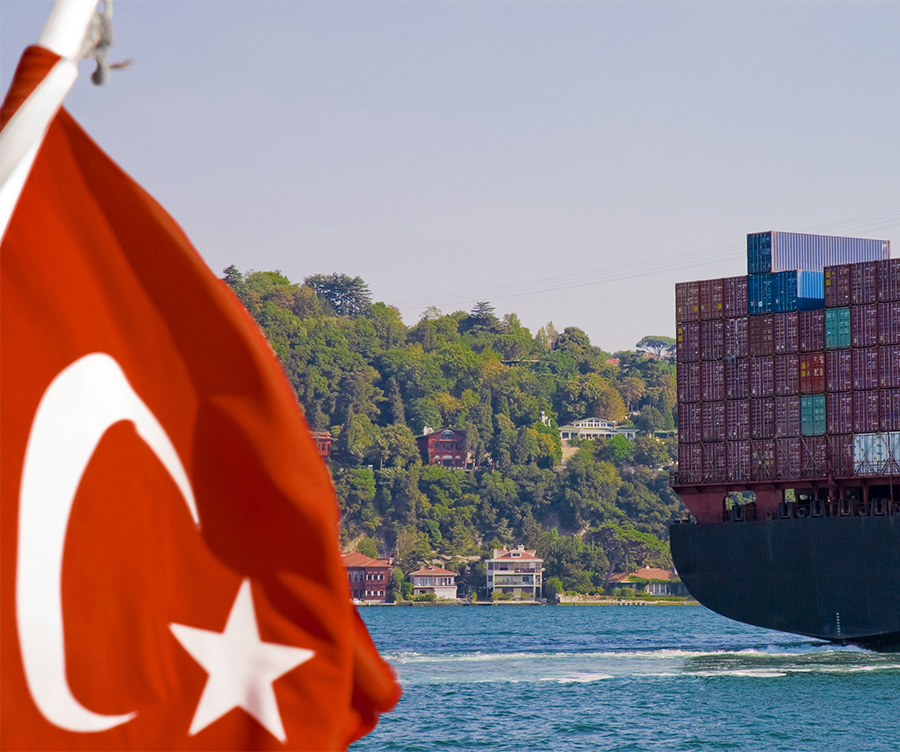Turkey has recorded another record-breaking surge in exports amid reforms aimed at improving companies’ access to finance, prompting authorities to continue revising targets upwards.
Data for October provided by the Turkish Exporters Assembly (TIM) – an industry association representing 100,000 exporters across 27 sectors – show that Turkish exports in October totalled US$20.8bn, more than a 20% year-on-year increase.
The figure is also the highest all-time amount for a single month, and puts the country firmly on course to exceed its target of US$211bn for 2021. İsmail Gülle, chairman of TIM, says that “current momentum shows [exports] will easily exceed this figure”.
“I am proud to say that despite the negative impact of this period, this figure is the highest export figure in our history,” he says.
Turkey’s automotive and chemicals sectors – historically its two largest export markets – have so far reported increases in international sales of 24% and 39% respectively compared to 2020, together totalling nearly US$40bn in value.
The value of Turkish steel exports has nearly doubled over the same period, reaching almost US$16bn, with sharp rises also reported in sales of raw materials, textiles and electronics.
Though the year-on-year increase partially reflects last year’s pandemic-inflicted disruption to trade, the figures from TIM also show a marked uptick compared to 2019, when annual exports totalled just over US$180bn.
In terms of destination markets, Germany, the US and UK remain the three largest importers of Turkish goods, but sales outside Europe and North America have also increased.
Exports to the Middle East and North Africa have risen by 22% and 42% respectively so far this year, TIM data shows, including notable increases in sales to Iraq and Israel.
Some of the increases have been attributed to economic factors, including the long-term decline in value of the Turkish lira. At the start of 2020, the lira was worth around US$0.17, but has since fallen below US$0.11 – a drop of around a third, and 80% lower than its value a decade ago.
That has given Turkish companies an advantage when selling goods in international currencies rather than in lira.
Turkey has also been a beneficiary of efforts by major European producers to near-shore supply chains following the Covid-19 crisis.
Engine producer Erin Motor and fashion brand Benetton are among the firms to have scaled back production in Asia, targeting manufacturers in Turkey as well as North Africa and Eastern Europe.
Turkish lenders have previously told GTR that the increase in export activity has been accompanied by a dramatic rise in demand for trade finance facilities.
In response to the figures, the Turkish government has updated its export targets in the medium term, setting a goal of US$255bn in value by 2024. TIM adds that it hopes that figure will reach US$300bn by 2026.
However, access to finance has remained a concern for the country’s authorities, including trade minister Mehmet Muş.
Speaking at a TIM general assembly meeting in September, Muş vowed to increase focus on export finance support, describing the issue as “one of the most important agenda items of our country”.
Since then, TIM has unveiled the Export Development Joint Stock Company, a fund developed in partnership with Türk Eximbank that exporters can access directly.
TIM’s Gülle says the project “will be an important driving force for meeting our US$300bn export target”.







